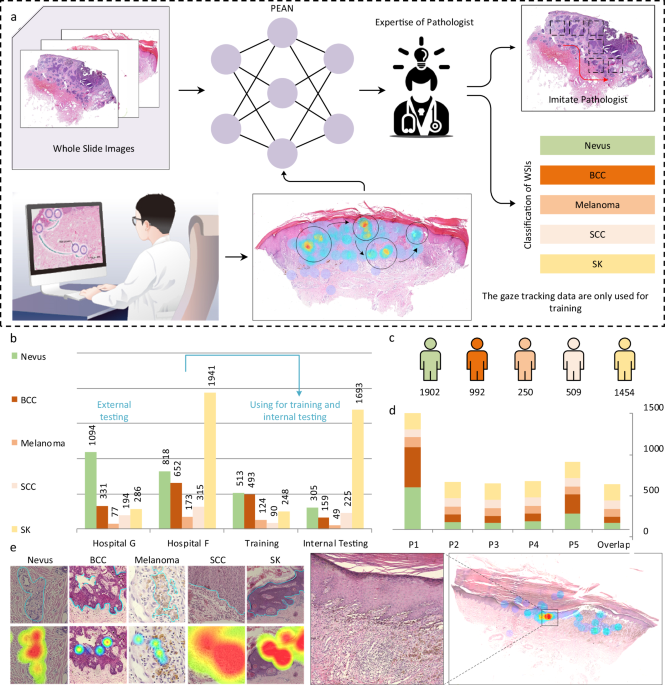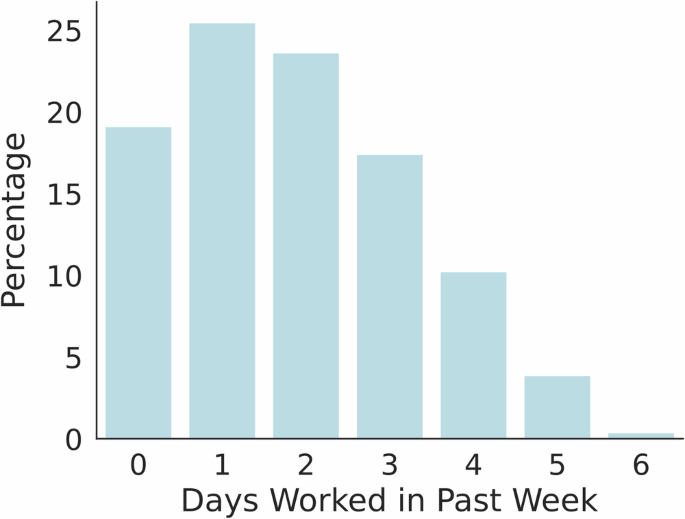Data Center Colocation Market is expected to generate a revenue of USD 13.88 Billion by 2032, Globally, at 13.22% CAGR: Verified Market Research®
The Data Center Colocation Market presents robust growth opportunities, particularly in North America, where digital transformation, cloud integration, and data compliance are accelerating demand. The key drivers—cost efficiency, data scalability, and disaster recovery needs—make colocation highly attractive across sectors. However, market entrants must address high setup costs, regulatory complexity, and sustainability demands. Strategic partnerships with local providers, green infrastructure investments, and service differentiation in regulated industries will be essential for success.
, /PRNewswire/ -- The Global Data Center Colocation Market Size is projected to grow at a CAGR of 13.22% from 2026 to 2032, according to a new report published by Verified Market Research®. The report reveals that the market was valued at USD 5.61 Billion in 2024 and is expected to reach USD 13.88 Billion by the end of the forecast period.
The global Data Center Colocation Market is witnessing rapid growth due to increased demand for scalable IT infrastructure, enhanced data security, and reduced operational costs. The shift toward hybrid cloud and edge computing further supports market expansion across regions.
Key Highlights of the Report:
Why This Report Matters:
This report provides actionable intelligence on the Data Center Colocation Market, helping businesses assess potential ROI, understand emerging opportunities, and navigate regulatory and infrastructure challenges. It also highlights technological trends shaping future demand.
Who You Should Read This Report:
For more information or to purchase the report, please contact us at: https://www.verifiedmarketresearch.com/download-sample/?rid=34366
Browse in-depth TOC on "Global Data Center Colocation Market Size"
202 - Pages
126 – Tables
37 – Figures
Report Scope
REPORT ATTRIBUTES | DETAILS |
Study Period | 2021-2032 |
Growth Rate | CAGR of ~13.22% from 2026 to 2032 |
Base Year for Valuation | 2024 |
Historical Period | 2021-2023 |
Quantitative Units | Value in USD Billion |
Forecast Period | 2026-2032 |
Report Coverage | Historical and Forecast Revenue Forecast, Historical and Forecast Volume, Growth Factors, Trends, Competitive Landscape, Key Players, Segmentation Analysis |
Segments Covered | |
Regions Covered | |
Key Players | Equinix, Digital Realty, NTT Communications, CyrusOne, CoreSite Realty, Rackspace Technology, Interxion (a Digital Realty company), QTS Realty Trust, Flexential, Iron Mountain |
Customization | Report customization along with purchase available upon request |
Global Data Center Colocation Market Overview
Market Driver
Rising Demand for Scalable and Cost-Efficient Infrastructure: The increasing need for enterprises to scale their IT infrastructure without incurring massive capital expenditures has significantly propelled the adoption of colocation services. Building, operating, and maintaining a private data center involves considerable financial, operational, and technical investment, which is not feasible for many businesses—especially SMEs and fast-scaling startups. Colocation offers a compelling alternative by allowing companies to rent physical space and leverage shared power, cooling, and connectivity within a highly secure and redundant facility. This shared resource model reduces operational burdens and allows enterprises to focus on core competencies, while still enjoying high levels of uptime, disaster recovery, and network optimization. As digital transformation accelerates globally, demand for scalable, pay-as-you-go IT environments continues to drive the growth of the data center colocation market.
Surge in Cloud Computing, IoT, and Big Data Adoption: The explosion of digital services, fueled by rapid adoption of cloud computing, IoT, 5G, and big data analytics, has created a massive surge in data volumes. Enterprises now require high-performance, low-latency, and scalable infrastructure to handle complex workloads and vast amounts of unstructured data. Colocation facilities enable direct interconnection with cloud platforms (hybrid and multi-cloud models), edge networks, and content delivery networks (CDNs), thereby reducing latency and enhancing end-user experiences. Moreover, the proliferation of smart devices, autonomous systems, and real-time analytics in sectors like healthcare, manufacturing, and financial services necessitates proximity to data processing hubs—which colocation centers, especially edge colocation providers, are well-positioned to offer. The convergence of these technology trends makes colocation a critical enabler of next-gen enterprise IT.
Increasing Focus on Business Continuity and Disaster Recovery: In today's always-on economy, system downtime can lead to substantial financial losses and reputational damage. Enterprises are prioritizing robust disaster recovery (DR) strategies, and colocation plays a vital role in providing resilient infrastructure with redundant power supplies, multi-network connectivity, and physical security features. These facilities are often equipped with fire suppression systems, biometric access controls, and backup generators to ensure maximum uptime and data integrity. In industries like banking, healthcare, and government services, where regulatory mandates enforce strict continuity standards, colocation offers a compliant, scalable, and secure solution. Additionally, colocation providers can support cross-regional failover and data replication strategies, ensuring uninterrupted access to mission-critical applications even during localized outages or natural disasters.
To Purchase a Comprehensive Report Analysis: https://www.verifiedmarketresearch.com/select-licence/?rid=34366
Market Restraint
High Initial Setup and Migration Costs: While colocation offers long-term operational cost savings, the upfront capital required for setting up equipment, transporting IT infrastructure, and integrating systems into a colocation facility can be a deterrent—especially for small and medium-sized businesses. Expenses related to server racks, networking hardware, cabling, and installation services, as well as hiring skilled IT staff to manage the transition, can be substantial. Additionally, the downtime associated with migration and risk of data loss during transition processes raises concerns. Many businesses delay colocation adoption due to uncertainties around immediate ROI and internal budgeting constraints. This cost barrier remains a critical challenge for market penetration, particularly in cost-sensitive regions and among organizations with legacy systems.
Regulatory and Data Sovereignty Challenges: With growing emphasis on data privacy and national cybersecurity frameworks, many countries have introduced strict regulations regarding where and how data can be stored and processed. Regulations such as the General Data Protection Regulation (GDPR) in the EU, the Digital Personal Data Protection Act in India, and HIPAA in the U.S. require companies to maintain strict control over their data assets. Colocating in facilities located outside a business's home country or in multi-tenant environments can raise compliance concerns, especially regarding data access, audit trails, and control over third-party involvement. As a result, highly regulated industries such as banking, defense, and pharmaceuticals may be hesitant to colocate critical data assets. This compliance landscape complicates global colocation strategies and may limit cross-border data center deployment.
Energy Consumption and Environmental Concerns: Data centers are notorious for their high energy consumption, and colocation facilities—given their scale and 24/7 operations—are no exception. Growing environmental awareness among corporations and stricter governmental sustainability mandates have put immense pressure on colocation providers to reduce carbon footprints. Facilities running on fossil-fuel-based energy sources face criticism and may even encounter restrictions or fines. Additionally, achieving energy efficiency in high-density data centers requires continuous investment in advanced cooling systems, power usage effectiveness (PUE) optimization, and adoption of renewable energy sources. The need to balance operational performance with environmental impact introduces complexity and cost, potentially delaying expansion plans or deterring sustainability-focused clients from partnering with traditional colocation providers.
Geographical Dominance: North America dominates the Data Center Colocation Market due to its robust digital infrastructure, high cloud adoption rates, and strong presence of hyperscale data center providers. The U.S. leads with demand driven by tech giants, BFSI firms, and government agencies prioritizing secure, scalable colocation solutions. Favorable regulatory frameworks, growing AI workloads, and a surge in hybrid IT models further boost market expansion. The region also sees rapid investments in green and modular colocation to meet ESG mandates.
Key Players
The "Global Data Center Colocation Market" study report will provide a valuable insight with an emphasis on the global market. The major players in the market are Equinix, Digital Realty, NTT Communications, CyrusOne, CoreSite Realty, Rackspace Technology, Interxion (a Digital Realty company), QTS Realty Trust, Flexential, Iron Mountain.
Data Center Colocation Market Segment Analysis
Based on the research, Verified Market Research has segmented the global market into Type, Application, End User and Geography.
- Middle East & Africa
- Latin America
Browse Related Reports:
Global Telecom Power System Market Size By Type (AC Power Systems, DC Power Systems, Renewable Energy Systems), By Component (Rectifiers, Inverters, Controllers, Batteries, Generators), By Application (Mobile Towers, Data Centers, Telecom Infrastructure), By Geography, And Forecast
Global Power Distribution Unit (PDU) for Data Centers Market Size By Type (Metered, Basic), By Data Center Type (Colocation, Hosting), By Application (IT & Telecom, BFSI), By Geography, And Forecast
Global Data Center Cooling Market Size By Cooling Solutions (Precision Air Conditioning (PAC), Chilled Water Systems), By Cooling Systems (Room-Based Cooling Systems, Rack-Based Cooling Systems), By End-User (Enterprise Data Centers, Colocation Data Centers), By Geography, And Forecast
Global Data Center Chip Market Size By Chip Type (Central Processing Unit, Field-Programmable Gate Array), By Data Center Size (Small and medium size, Large size), By Vertical Industry (BFSI, Government), By Geography, And Forecast
Top 7 Data Warehouse Companies making complex data work easy and smoothly
Visualize Data Center Colocation Market using Verified Market Intelligence -:
Verified Market Intelligence is our BI Enabled Platform for narrative storytelling in this market. VMI offers in-depth forecasted trends and accurate Insights on over 20,000+ emerging & niche markets, helping you make critical revenue-impacting decisions for a brilliant future.
VMI provides a holistic overview and global competitive landscape with respect to Region, Country, Segment, and Key players of your market. Present your Market Report & findings with an inbuilt presentation feature saving over 70% of your time and resources for Investor, Sales & Marketing, R&D, and Product Development pitches. VMI enables data delivery In Excel and Interactive PDF formats with over 15+ Key Market Indicators for your market.
About Us
Verified Market Research® stands at the forefront as a global leader in Research and Consulting, offering unparalleled analytical research solutions that empower organizations with the insights needed for critical business decisions. Celebrating 10+ years of service, VMR has been instrumental in providing founders and companies with precise, up-to-date research data.
With a team of 500+ Analysts and subject matter experts, VMR leverages internationally recognized research methodologies for data collection and analyses, covering over 15,000 high impact and niche markets. This robust team ensures data integrity and offers insights that are both informative and actionable, tailored to the strategic needs of businesses across various industries.
VMR's domain expertise is recognized across 14 key industries, including Semiconductor & Electronics, Healthcare & Pharmaceuticals, Energy, Technology, Automobiles, Defense, Mining, Manufacturing, Retail, and Agriculture & Food. In-depth market analysis cover over 52 countries, with advanced data collection methods and sophisticated research techniques being utilized. This approach allows for actionable insights to be furnished by seasoned analysts, equipping clients with the essential knowledge necessary for critical revenue decisions across these varied and vital industries.
Verified Market Research® is also a member of ESOMAR, an organization renowned for setting the benchmark in ethical and professional standards in market research. This affiliation highlights VMR's dedication to conducting research with integrity and reliability, ensuring that the insights offered are not only valuable but also ethically sourced and respected worldwide.
Follow Us On: LinkedIn | Twitter | Threads | Instagram | Facebook
Contact Us
Mr. Edwyne Fernandes
Verified Market Research®
US: +1 (650)-781-4080
US Toll Free: +1 (800)-782-1768
Email: [email protected]
Web: https://www.verifiedmarketresearch.com/
Logo: https://mma.prnewswire.com/media/2015407/VMR_Logo.jpg











